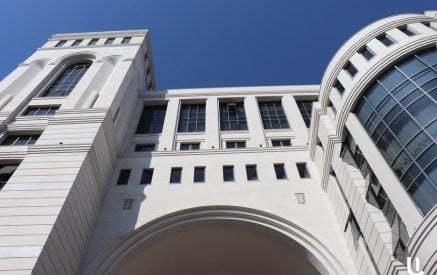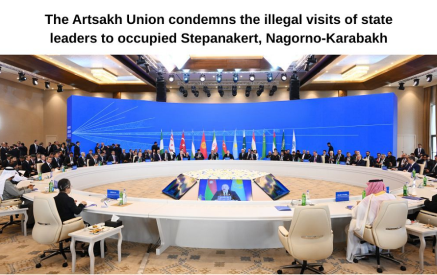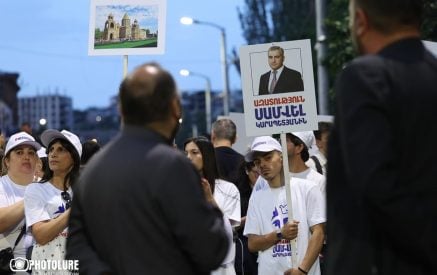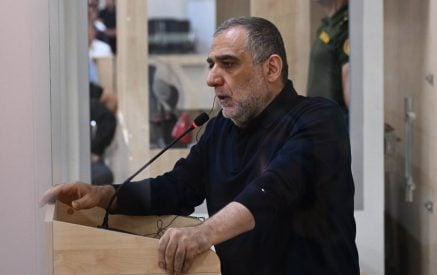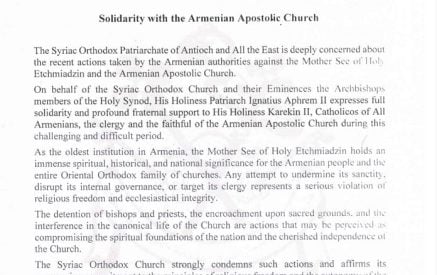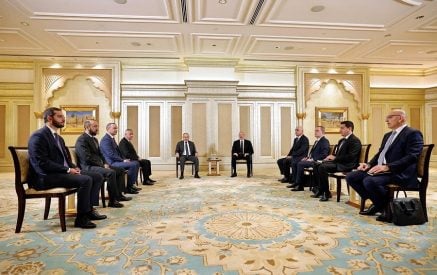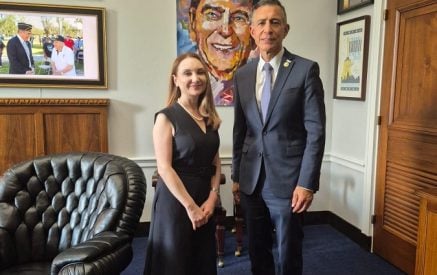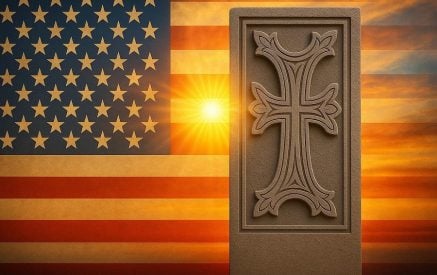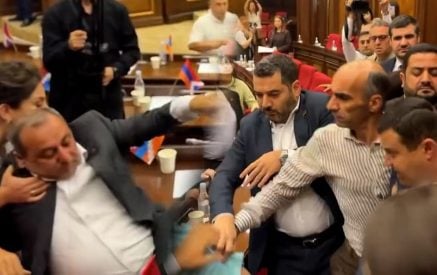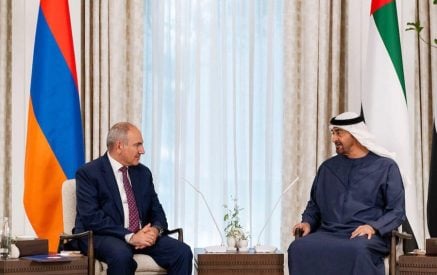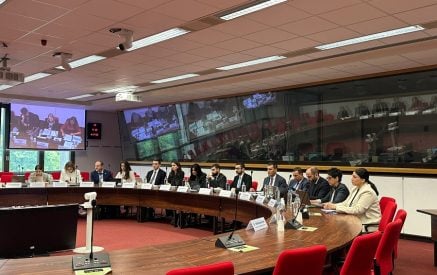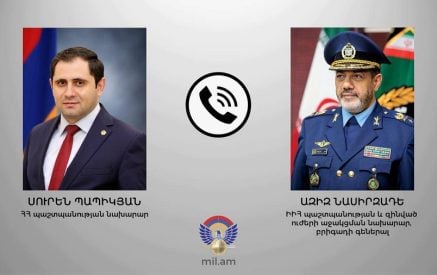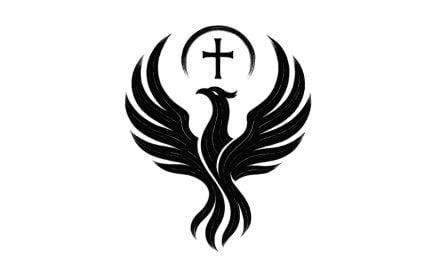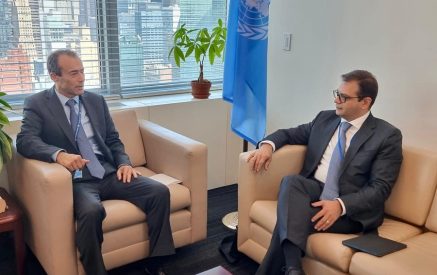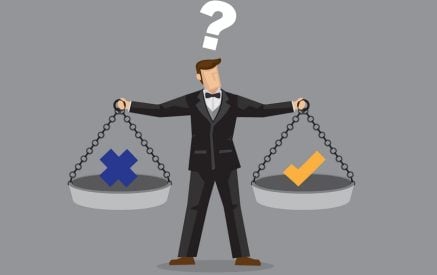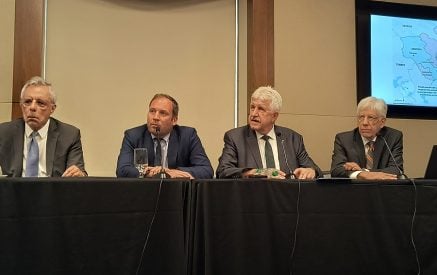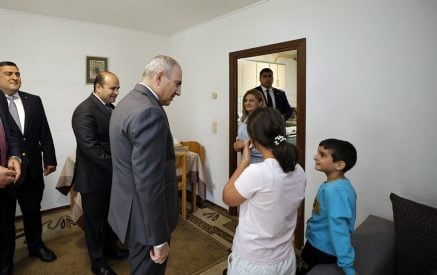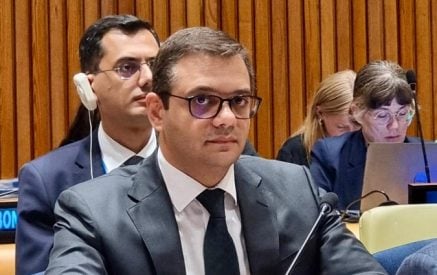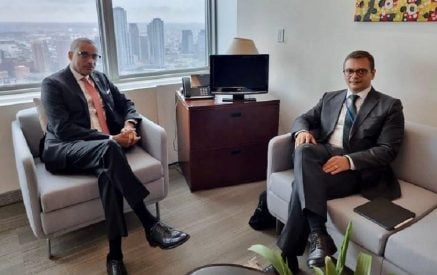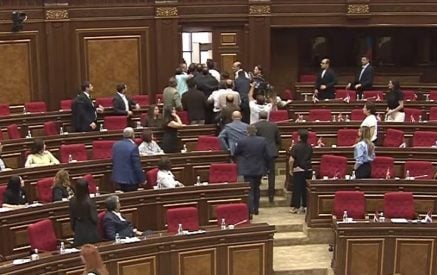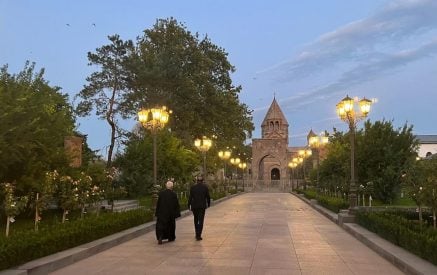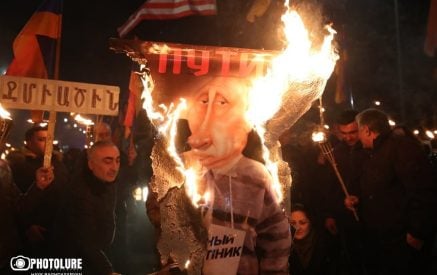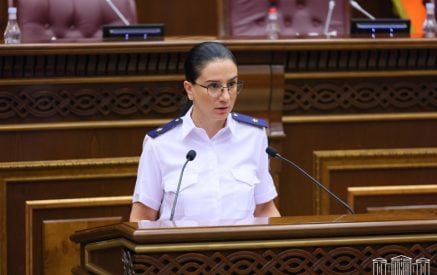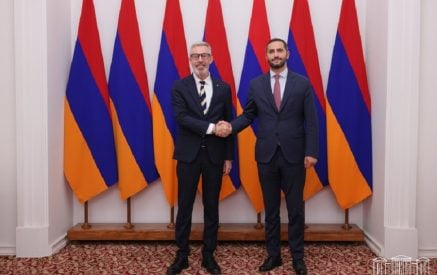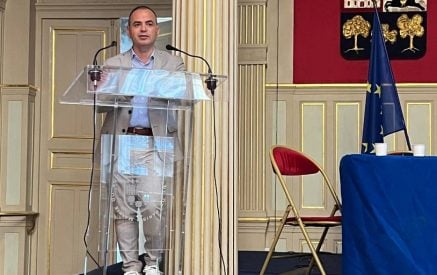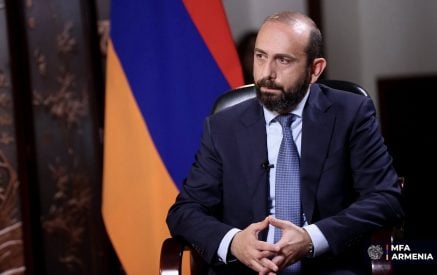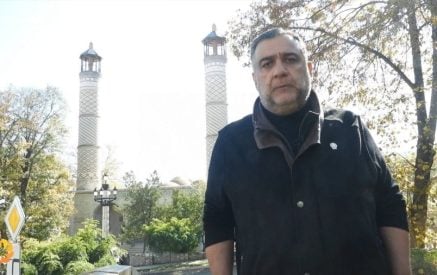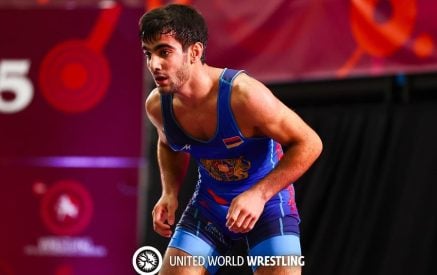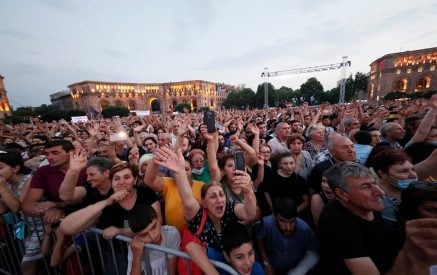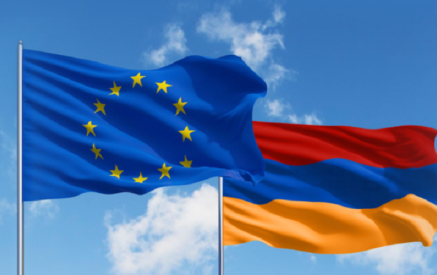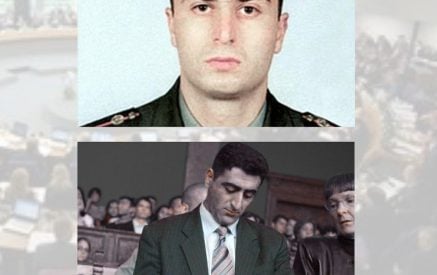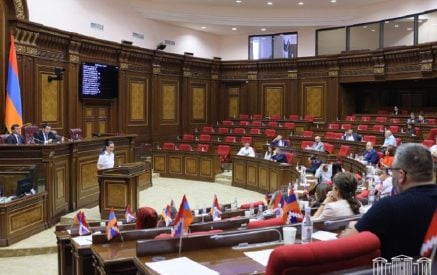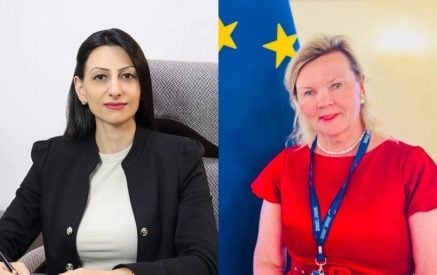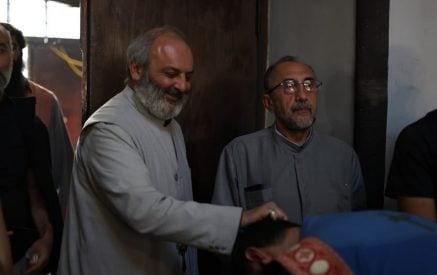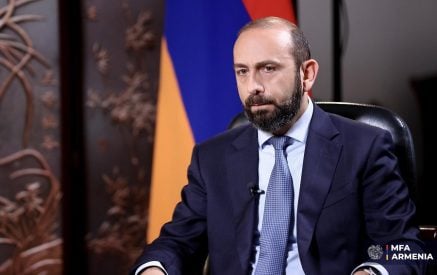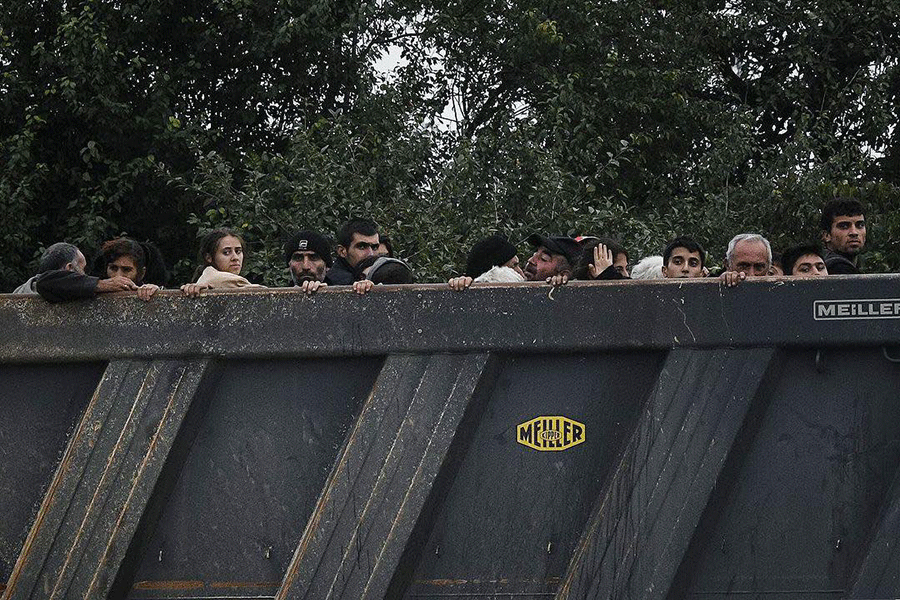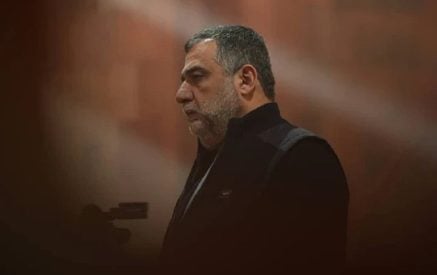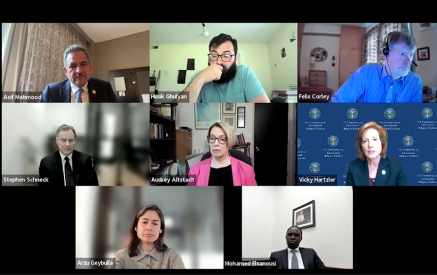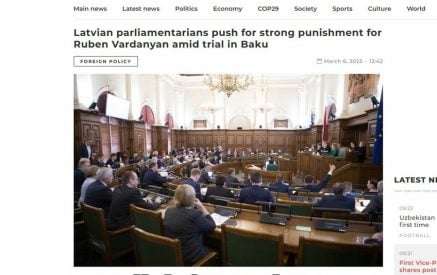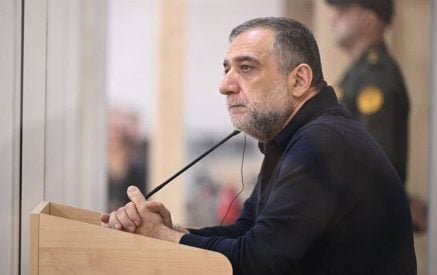As early as August 2022, human rights organizations and genocide scholars warned that Armenians in the South Caucasus faced a “significant genocide risk.” International law expert Luis Morena Ocampo, 2003-2012 first chief prosecutor of the International Criminal Court, confirmed this assessment in early August 2023.
This has not helped the Republic of Artsakh. Despite its increasingly urgent appeals to the world community for help, the latter responded too late and only verbally. By then, it had long been clear that Azerbaijan would be dissuaded from its genocidal Artsakh policy by mere words and not even by the repeated orders of the International Criminal Court. For nine months Azerbaijan was able to impose a starvation blockade on Artsakh without any interference, under constantly tightening conditions. Then, on September 19, Azerbaijani forces militarily attacked the starving Republic of Artsakh.
Its political and military leadership was prudent enough not to inflict further bloodshed on the population and declared its self-dissolution at the beginning of the forthcoming year. The mass exodus of over 100,000 inhabitants of the Republic of Artsakh followed. This exodus was not only a flight and expulsion. It was at the same time a referendum by feet. For who among us could imagine living under the rule of a regime that oppresses and persecutes not only religious or ethnic minorities, but also any opposition from its own population? What resident of the Republic of Artsakh would voluntarily place himself under the rule of a regime that had just cold-bloodedly created a supply disaster in his homeland for nine months? Also, 70 years of misrule under Soviet conditions are still vividly remembered by many older Artsakh Armenians.
So it was also a vote on freedom. Freedom has always been a high value for the Armenian population of Artsakh, for many the supreme value. But not all escaped. Several hundred remained behind, often under unexplained circumstances, sometimes as hostages of the Azerbaijani politics of revenge. There is reason to fear an eliticide of the kind perpetrated by the Young Turks against the Armenian population of the Ottoman Empire. In their tradition, Aliyev’s arrest list contains 300 names of prominent representatives of the Artsakh government, administration and military leadership. However, less prominent people have also disappeared unknown and the International Red Cross is still searching for them.
Read also
One can only hope that these missing persons can be found and rescued. For the armenophobic rhetoric of the Aliyev regime and past experience lead one to fear the worst. Like any racially motivated hatred, Azerbaijani Armenophobia has several functions. One essential one is externalization, i.e., the detour of domestic tensions to an alleged external enemy, the Armenians. It is also noteworthy that Azerbaijan has for years styled itself as a victim of the Armenians, constructing an Armenian genocide throughout the 20th century, from the first “Tatar-Armenian war” (1904/5) to the first Karabakh war in 1991-94, with a total of one million victims. Elaborate museums and memorials have been created for this Azerbaijani variant of victim-blaming. Azerbaijani textbooks, media and political decision-makers indoctrinate the population accordingly.
The question is how the republics of Armenia and Azerbaijan can coexist under these conditions? How long will it take for Armenians to regain trust in Azerbaijanis? And most importantly, when will Azerbaijan’s land hunger be satisfied? Azerbaijan has already occupied 50 square kilometers of the territory of the Republic of Armenia since May 2021. Can the Republic of Armenia protect itself from further takings?
Armenian society in the Republic of Armenia as well as in the Diaspora is understandably in shock at the recent developments and is looking for explanations. Supporters and opponents of the current head of government accuse each other of betrayal. There is great disappointment in Russia’s alleged protective power, as well as in the indolence and indifference of the world public.
Will a change of foreign policy help? It is doubtful that “the collective West,” especially the United States and the European Community, have the interest to reward Armenia’s departure from Russia through increased engagement. In Western media it has been claimed mantra-like that the conflict in and around Artsakh is a dispute between the republics of Azerbaijan and Armenia. And that Artsakh belongs to Azerbaijan “under international law”. Even if this is at least disputed. The fact that this was in fact a conflict under international law between the right to self-determination and territorial integrity was hardly mentioned, quite unlike in the case of Kosovo, where the “collective West” backed the Kosovo Albanians’ demand for self-determination.
So where do we go from here? It may serve as a vague consolation that in history the word never exists. We have seen developments in the 20th century that no one thought likely, not even experts. In this respect, it would be wrong to deny in principle a possibility of return for the Artsakh Armenians. But in the foreseeable future, I do not see any real chances here. It seems to me important to document the crimes committed in the course of 2020-2023 and to come to terms with them both legally and politically, taking into account the responsibility that the Republic of Armenia bore as a negotiating partner in the Minsk Group for the fate of the Republic of Artsakh, but which not even Armenia dared to recognize.
Tessa Hofmann
German scholar of Armenian and Genocide Studies, PhD, research scholar at Free University Berlin, chairwoman of Human Rights Organisation AGA



